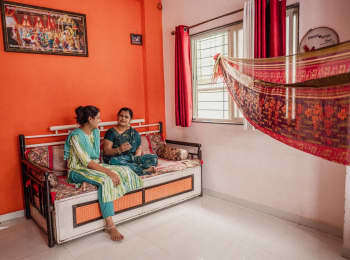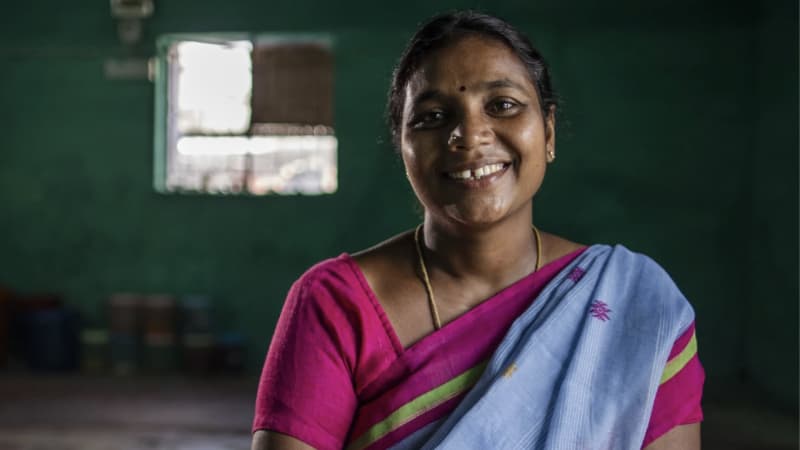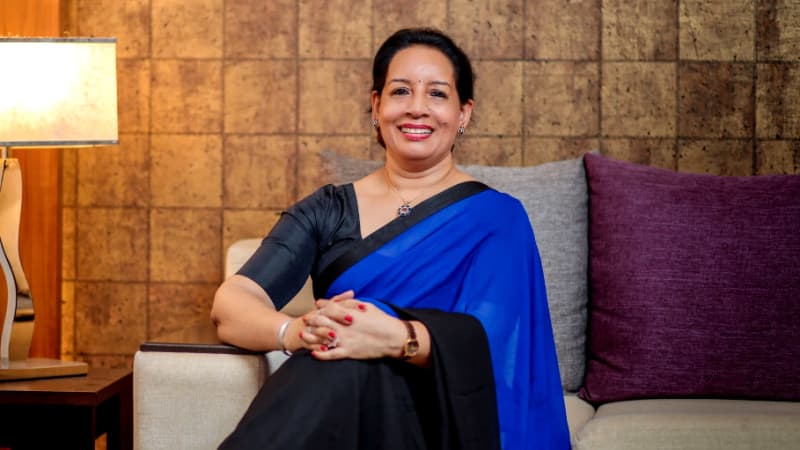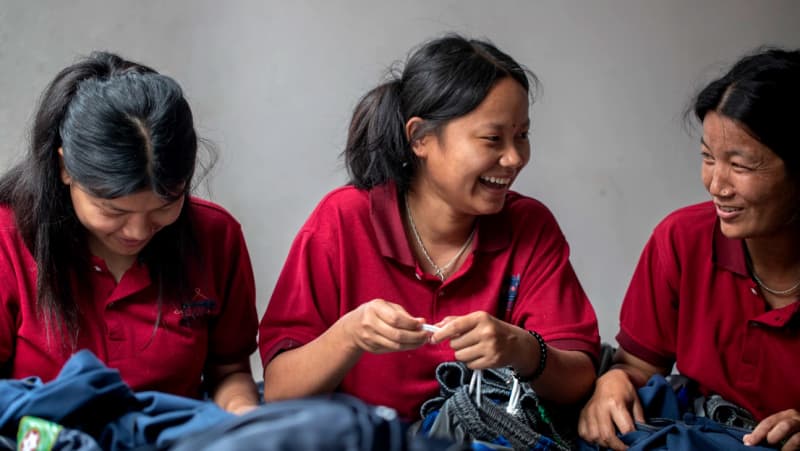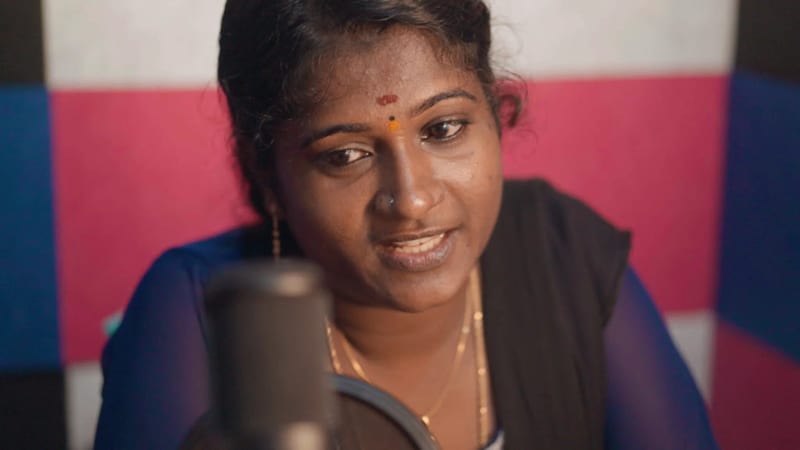Dreamland
A digital housing startup boosts homeownership among the underserved in India
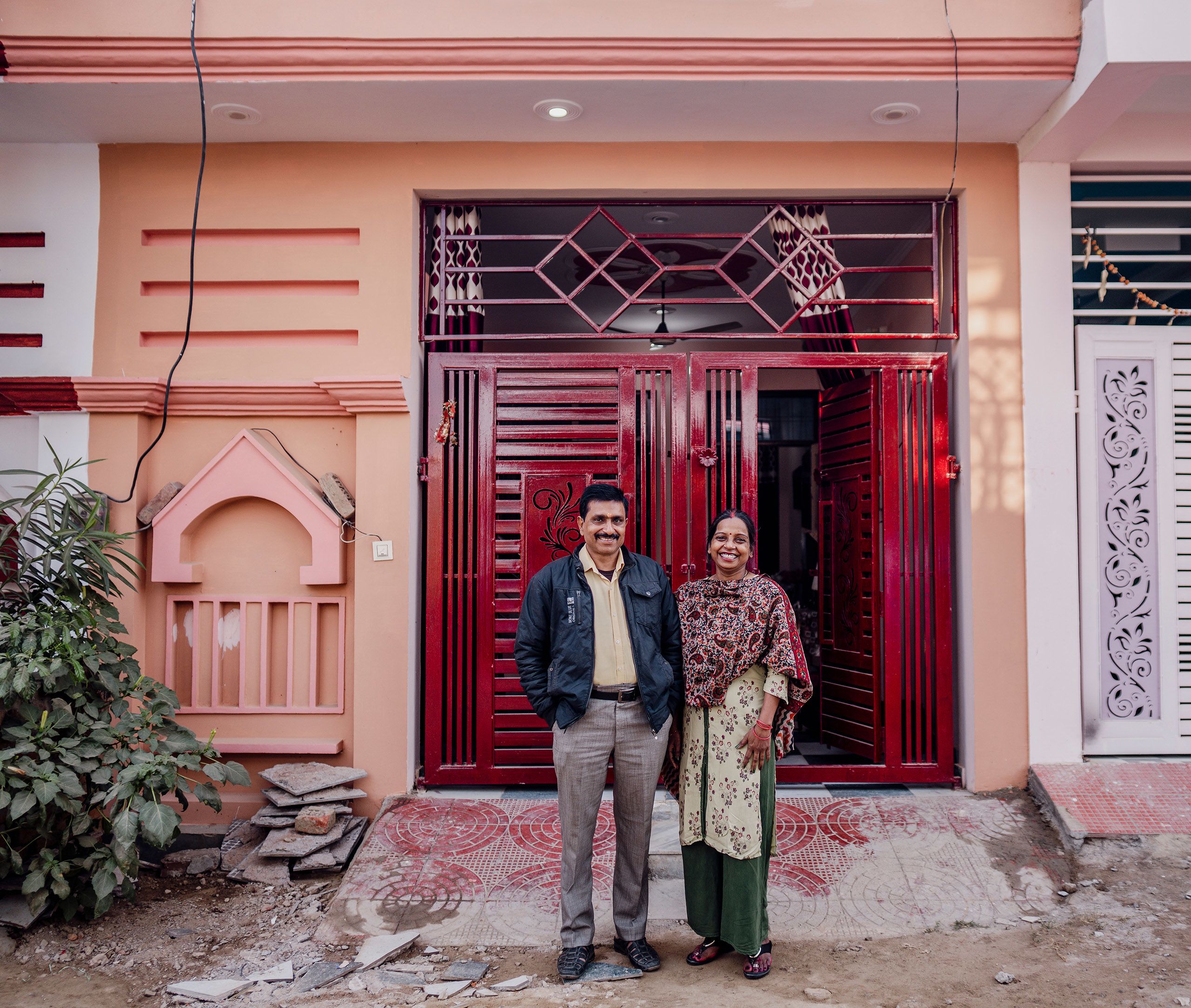
In 2015, Multiples Alternate Asset Management, an India-focused private equity (PE) fund manager, was scouting for investment opportunities in affordable housing when it came across a proposal from two entrepreneurs, Sandeep Menon and Sujay Patil.
“All we had was a laptop, a PowerPoint presentation and a few Excel sheets,” recalled Menon. But Multiples was impressed with their idea: A housing lending startup for creditworthy individuals who struggle to secure financing from traditional banks due to a lack of formal documentation.
That would include the self-employed, such as owners of retails stores, auto repair garages and textile shops, and people working in the informal sector. Traditional banks have largely shunned them, focusing instead on salaried employees living in large Indian cities.
Lending to those groups tended not to be profitable for traditional banks, but Vastu found an efficient way to assess the creditworthiness of potential borrowers: An all-digital tech and data platform backed up by artificial intelligence (AI), which can approve loan applications in seconds, keeping costs low and consumer engagement high.
The technology, combined with a customer-focused sales team, could help address the lack of affordable housing amid rapid urbanization in India, said Multiples’ Managing Director Sudhir Variyar.
“A stable, secure home allows an individual to reach their full potential and create an uplifting impact on families,” he said. “It is possible to achieve both impact and profitability in this sector.”
Multiples provided $7.5 million in seed money, along with three other investors, to help create the company known as Vastu Housing Finance. That was partly funded by IFC, one of the largest PE fund investors in emerging markets, through its backing of Multiples’ PE fund.
Unlike most large global PE investors, Variyar said, IFC, as a development finance institution, supports country-specific funds in India, including newer funds like Multiples, which was founded in 2009. The institution has played a critical role in supporting the growth of the private equity ecosystem in India.
Today, Multiples’ bet has paid off. Vastu is now one of the fastest growing affordable housing companies in India. About 98% of Vastu’s loans are made to women as borrowers or co-borrowers, according to the company. Multiples remains Vastu’s largest shareholder, owning 40% of the company. In all, it has invested $76.8 million in the company, plus $109.8 million in co-investments.
Through Multiples and another firm, Faering Capital, IFC had a 5% indirect stake in Vastu as of September 2024. In addition, in March 2024, IFC made a direct equity investment of $40 million in the company for a 3.3% stake to increase access to financing for affordable housing, especially among low-income, female borrowers. The institution has been drawing on its vast international experiences to help Vastu explore products in green housing.
“With an estimated $16 trillion financing gap, the global affordable housing crisis demands urgent action,” said Farid Fezoua, Global Director for Disruptive Technologies, Services, and Funds at IFC. “Mortgage financing companies like Vastu and others across the housing value chain can help boost access to sustainable, resilient, and affordable housing, including among women, low-income, and the unbanked and underserved populations in emerging markets.”
“A stable, secure home allows an individual to reach their full potential and create an uplifting impact on families.”
– Sudhir Variyar, Multiples’ Managing Director
In 2015, Multiples Alternate Asset Management, an India-focused private equity (PE) fund manager, helped Sandeep Menon and Sujay Patil create Vastu. The housing lending startup focuses on individuals without adequate formal documentation, including the self-employed.
In 2015, Multiples Alternate Asset Management, an India-focused private equity (PE) fund manager, helped Sandeep Menon and Sujay Patil create Vastu. The housing lending startup focuses on individuals without adequate formal documentation, including the self-employed.
“With an estimated $16 trillion financing gap, the global affordable housing crisis demands urgent action.”
– Farid Fezoua, IFC Global Dir. for Disruptive Technologies, Services, and Funds
Complex Terrain
Most of Vastu’s customers are self-employed and first-time homeowners. Their incomes are often a mix of formal and informal work, making it difficult to access traditional banking products. In addition, many borrowers have to navigate murky situations to seek credit, including from informal debt lenders, families, acquaintances, and extended social networks.
In her 30-month journey seeking a loan to build a house, for example, Jyoti Shukla had lost money multiple times to unscrupulous players. A homebuilder stole 80,000 rupees (about $926) from her. “Professional-looking” brokers recommended by acquaintances took about 20,000 rupees in fees, only to deny her applications because of a lack of formal income.
“All of these are the losses we have to bear,” said Shukla, 45, who lives with her husband Amit, 49, in Fazullaganj, Lucknow, in the state of Uttar Pradesh. “I had lost all hope.”
Vastu, Shukla said, was the only one that proved to be reliable. Her loan application for about 2 million rupees took 15 days. Her relationship manager, Raghavendra Singh, had explained to her the loan application process and then checked with her customers and vendors to verify her income. She moved into her new house in October 2023.
“My hands were shaking when I signed the registration,” said Shukla. “Now, when I get up in the morning, I sing prayers with a peaceful mind. I am absolutely at peace.”
Recently, when an online payment couldn’t be processed because of a freeze imposed by her bank, Singh helped her find a solution to ensure her payment wasn’t delayed. “We are in the business of fulfilling dreams, not just giving a loan,” said Singh.
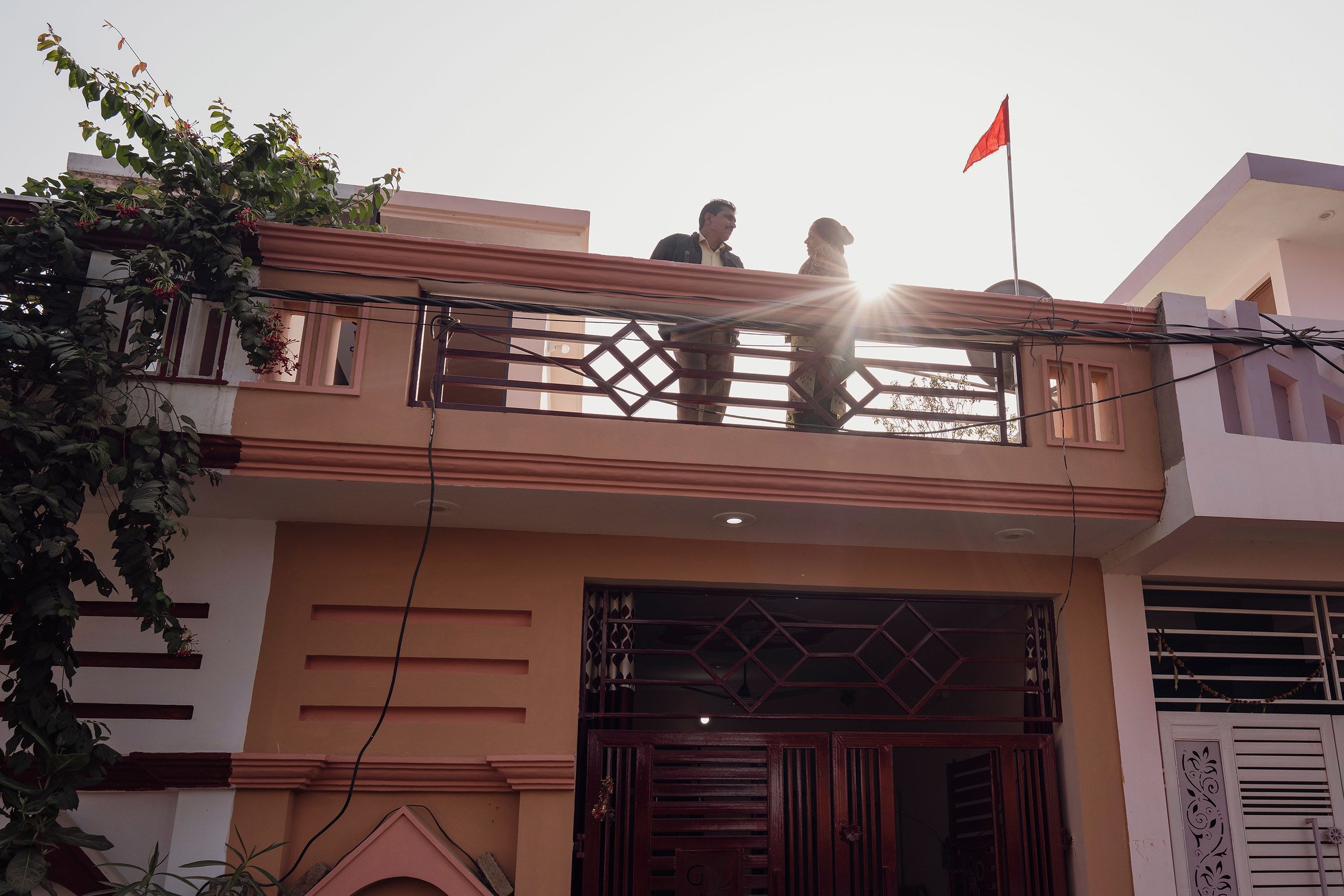
Sunita Aghav, on right, and Chhaya Sanap, two friends (now extended family) born in the same village, built a new home in Pune with a loan from Vastu. Their loan application in 2022 took eight days. Their new house was completed a year later. It has three floors, and several rooms have been rented out, collecting 21,000 rupees per month. “I feel really good,” said Aghav.
Sunita Aghav, on right, and Chhaya Sanap, two friends (now extended family) born in the same village, built a new home in Pune with a loan from Vastu. Their loan application in 2022 took eight days. Their new house was completed a year later. It has three floors, and several rooms have been rented out, collecting 21,000 rupees per month. “I feel really good,” said Aghav.
Vastu also fills the gap in serving customers who don’t have typical borrower profiles. In Pune, in the state of Maharashtra, Sunita Aghav, 47, and Chhaya Sanap, 39, had always wanted to buy a home together.
For 25 years, the two women, born in the same village, lived together with their families – a total of seven people – in a metal hut built on land owned by Aghav’s husband. They wanted to build a house but couldn’t get a loan as vegetable vendors. They also required guarantees from someone earning a government salary of at least 14,000 rupees a month – a tall order for the two families.
By contrast, their Vastu loan approval took eight days. Vastu’s relationship manager, Ganesh Sanap (no relation to Chhaya), followed Aghav as she went to vegetable markets at 4 AM to buy supplies. He verified her purchase orders with vendors who regularly sold her tomatoes, potatoes, okras, eggplants, and other vegetables. He also watched her selling vegetables for six hours to verify customer orders. Vastu approved a 20-year loan of 1,500,000 rupees.
Today, the three-story house offers the two women financial security. They rent out part of the house to three tenants for 21,000 rupees a month. Two years ago, Chhaya closed her 15-year-old vegetable store and started a more profitable business in her new kitchen: meal-prep. She now has 25 customers, most of them single men who favor her colorful dishes, such as pav bhaji and misal pav.
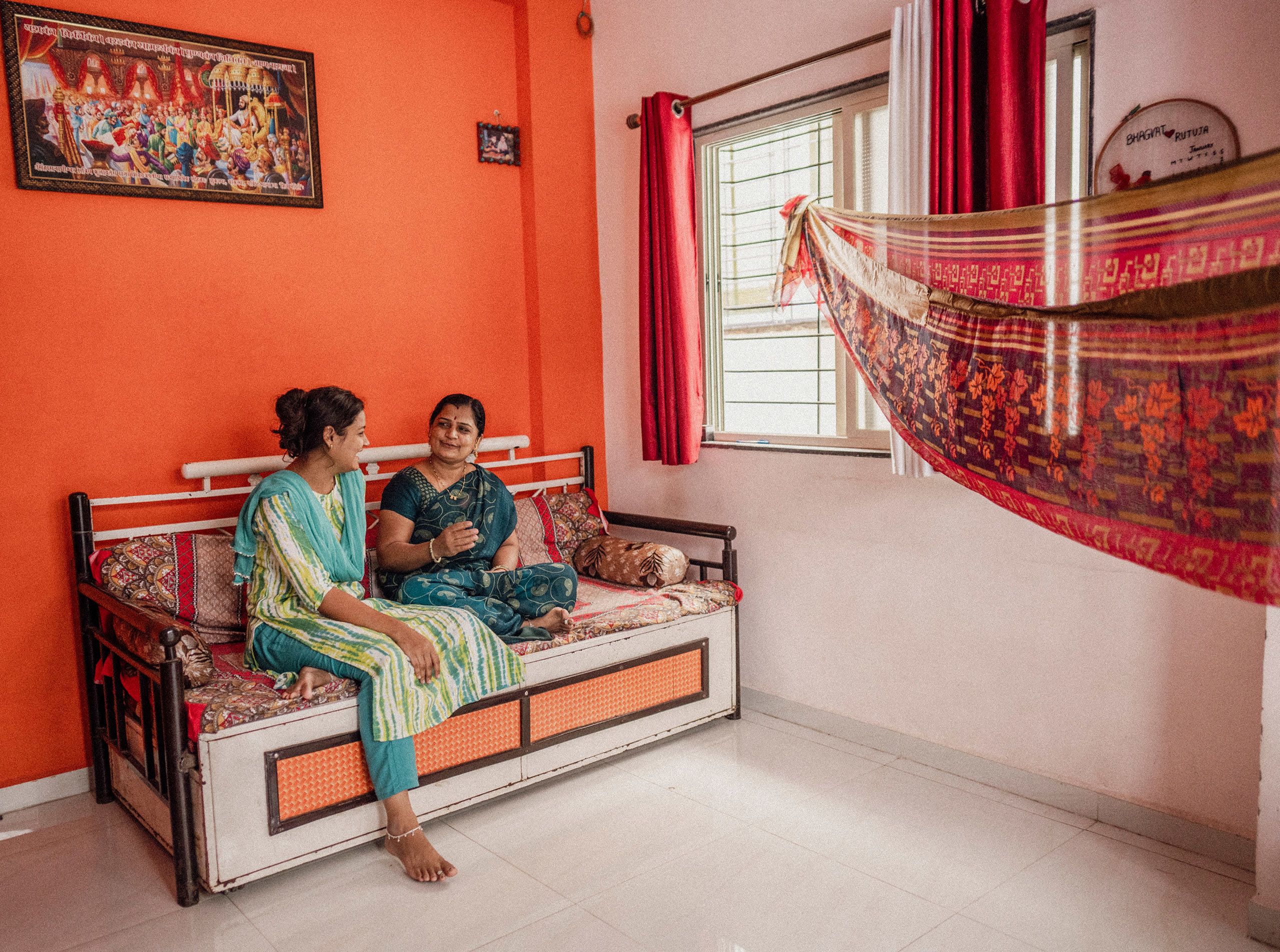
“Now, when I get up in the morning, I sing prayers with a peaceful mind. I am absolutely at peace.”
– Jyoti Shukla, Vastu client
A Digital Platform that Assesses Creditworthiness in Five Seconds
Vastu’s success comes from its fast, efficient operations powered by Pulse, a proprietary digital end-to-end loan management system. Thanks to Pulse, Vastu became one of the first affordable housing companies in India that doesn’t require customers to submit any documents on paper until their loan is approved.
Pulse also allows Vastu to quickly judge a customer’s creditworthiness by combining field work with advanced technology. The system leverages more than 1,500 data points—including those from credit bureaus, employment, and previous loans—to create a comprehensive credit profile for each borrower.
“We are betting on the self-employed, but they have a lot of skin in the game, with a downpayment of 40-50%, Menon said. “We know they have been living in the same city, running the same business for a long time, with a good bureau score in many cases and a credit history of more than 10 years.”
On a recent visit to the company’s South Mumbai headquarters, Vastu co-founder Sujay Patil and a data team armed with laptops provided a run-through of the company’s digital Pulse system.
Projected on a screen in Vastu’s conference room, the live dashboard showed the locations of the field team, the number of leads generated, and the stage of each loan application, disbursement, and collection.
All employees work on loan applications through the Pulse app on their mobile phone, which offers GPS tracking. From the moment a salesperson visits a potential loan applicant, the company’s technical, credit, legal, collections and other relevant teams can see all data input in real time on the dashboard.
The salesperson is required to upload five photos of the property along with a video interview of the loan applicant. Scans of bank cards, monthly bank statements and other financial documents pop up on the dashboard. A loan application number is generated.
Pulse conducts an analysis of the applicant’s records within minutes. Powered by a credit scoring system using machine learning, it summarizes datapoints from four credit bureaus – which can stretch to 30 pages long – into a simple report with a table. Key information is quickly displayed, such as the number of active loans the customer has, highest borrowing amount, and the number of previous defaults.
The system also functions as risk control. The credit team analyzes the report and flags to the salesperson any discrepancies, such as credit reports showing both married and maiden names of borrowers. In addition, Pulse enables direct communication with Vastu’s 180 independent property appraisers, who receive work orders from Vastu and upload their completed reports directly into the system.
“By leveraging data science and analytics, we empower our business and credit teams to make informed origination and underwriting decisions,” said Patil.
A client uses the Vastu Connect App on their phone.
A client uses the Vastu Connect App on their phone.
Vastu said it has a comprehensive approach designed to data security. It has transitioned to using a single source of data to improve data governance, aggregation, and reporting.
During visits with potential customers, the salesperson interviews them to check on their cash flow and debt load, and conducts references checks. They also discuss issues showing up on the table and collect documentation as needed, such as missed payments. The field report, combined with Pulse’s work, contributes to a final credit approval memo that is generated within 4-7 days.
The human factor is key to Vastu’s culture. Employees receive training on respecting customers and India’s diverse culture. Should you knock on the door before entering a house? Which part of a customer’s home is off limits? Menon said employees are also judged by their behavior when no one is watching, as well as how they handle adversity. Sometimes, he sends underwriters, data analysts and other back-end office workers to the field to see customers in person.
“It's a relentless focus to make sure that we build a product focused on the customer,” said Menon. “If you put the customer at the center of whatever we do, with our people, with our technology and the massive runway, we can build a $5 billion, $10 billion business in India. That’s the opportunity.”
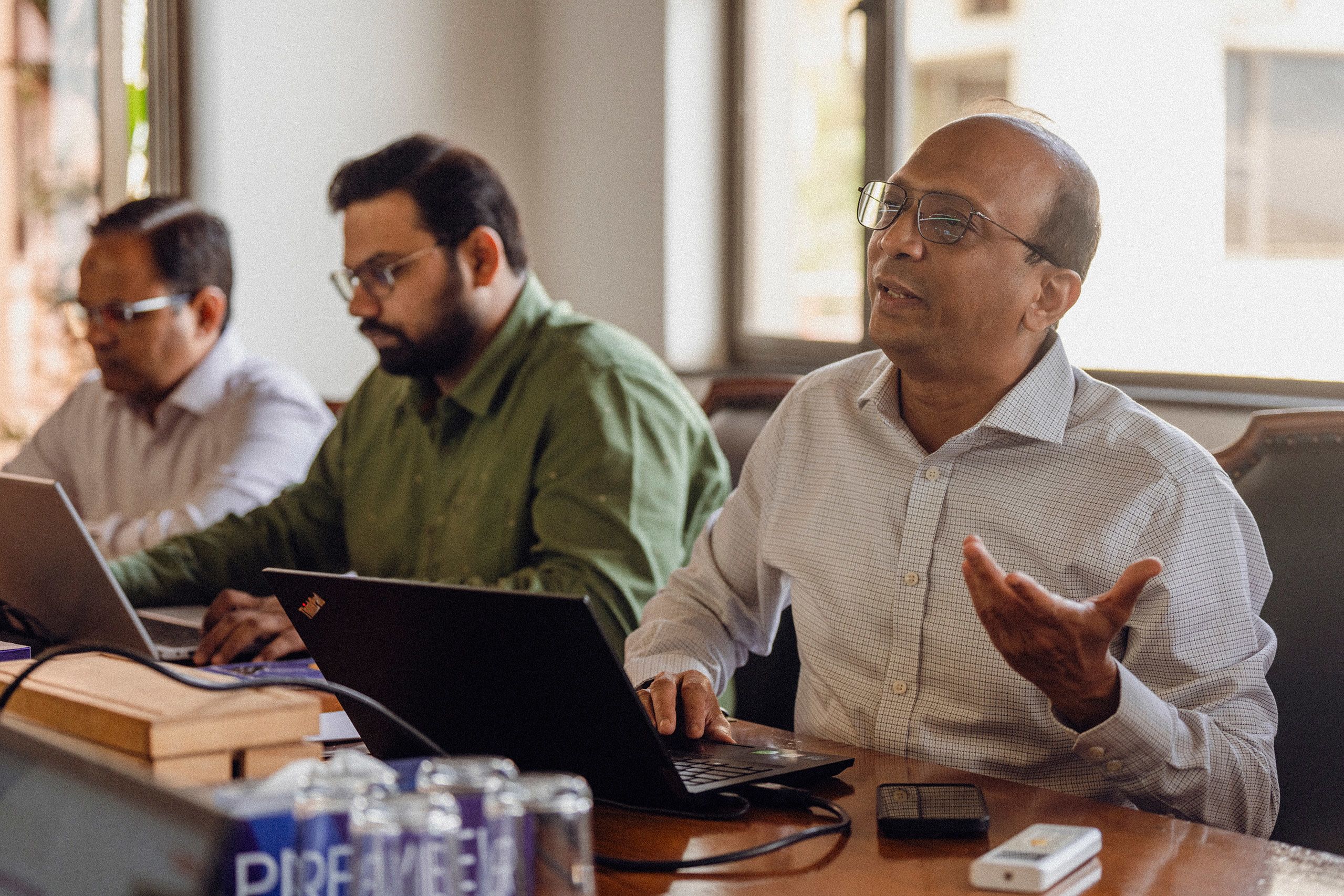

Published March 2025
Read more here













